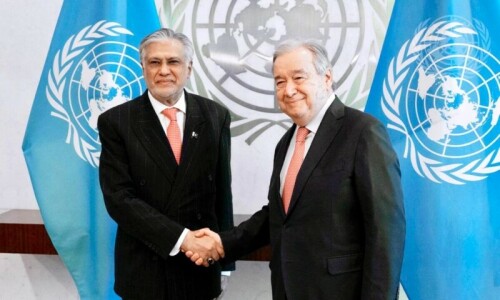Top G20 finance officials agreed on Saturday that there was an urgent need to find a global system to tax internet giants like Google and Facebook but clashed on the best way to do it.
The G20 has tasked the Organisation for Economic Cooperation and Development to fix an international tax system that has seen some internet heavyweights take advantage of low-tax jurisdictions in places like Ireland and pay next to nothing in other countries where they make huge profits.
OECD chief Angel Gurria presented G20 finance ministers and central bank chiefs meeting over the weekend in the western Japanese city of Fukuoka with a "roadmap", already signed off by 129 countries, in a bid to clinch a long-term solution by 2020.
"We have to hurry up," stressed French Finance Minister Bruno Le Maire during a panel discussion of top policymakers before the G20 meeting officially opened.
Le Maire called for a more ambitious timeframe to forge a global consensus, saying: "The right schedule is to find a compromise by the end of this year."
British Finance Minister Philip Hammond said taxing internet giants fairly was a response to something that is "perceived by our population to be a gross injustice in our tax system".
Ministers are weighing a new tax policy based on the amount of business a company does in a country, not where it is headquartered.
But there are rival proposals in the mix, including a wider US-led approach that could affect European and Asian multinationals in other sectors than technology.
United States Treasury Secretary Steven Mnuchin took a blunt view of policies in Britain and France, which have already introduced their own taxes on digital players, given a lack of global consensus.
"I would say the US has significant concerns with the two current taxes that are being proposed by France and the United Kingdom but let me give them some good credit for proposing them in the sense (that) they have created an urgency to deal with this issue," said Mnuchin.
"Although I don't like them, I do appreciate the impetus for these issues," added the top US finance official.
"We are not looking to rewrite the entire tax code, but we do need to look at the balance between what may be the issue in digital and perhaps how this new environment affects non-digital companies as well," he said.
While there were gaps on the exact make-up of the reform, the policymakers agreed there needed to be a global approach to taxing the big internet firms.
Gurria said there was a risk of "cacophony" and a "race to the bottom" without an agreed global framework and Mnuchin agreed that "having a fragmented tax approach is not good for any of us".
Ahead of the meeting, campaign group Oxfam said the Fukuoka meeting was a "unique chance to put a stop to corporate tax dodging and damaging tax competition".
'Very, very significant'
The other topic dominating the G20 finance ministers' meeting was the impact of spiralling global trade conflicts on an increasingly fragile economic outlook.
But the ministers were given a boost just hours before the meeting started with news that Washington had scrapped threatened tariffs on Mexico after a deal on immigration.
"We couldn't be more pleased with the agreement that we reached. It is very, very significant and we very much appreciate the commitments that Mexico has made to help us on those important immigration issues," Mnuchin told reporters.
Trump had threatened to impose a five per cent tariff on all Mexican goods from Monday but shelved this plan after the deal was agreed, prompting a sigh of relief from the Japanese central bank governor.
"It is good, not just for the United States and Mexico, but also for the entire global economy," Haruhiko Kuroda told reporters.
On the burning issue of the trade war between China and the US, the world's top two economies, Mnuchin said Washington was prepared to continue talks but that any potential deal would be struck by the two leaders later this month.
"We were on the way to a historic deal. If they want to come back to the table and complete the deal on the terms that we were continuing to negotiate, that will be great. If not, as the president said, we'll move on with tariffs," said the treasury secretary.
By a quirk of the calendar, G20 trade ministers are also meeting the same weekend in Japan but the finance ministers will be tackling the current tensions and their economic consequences.















































